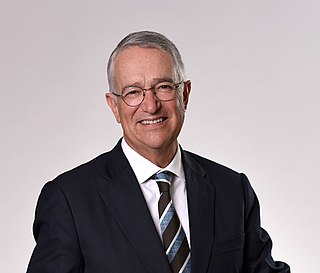A Quote by Nathaniel Branden
A depression is a large-scale decline in production and trade...there is nothing in the nature of a free-market economy to cause such an event.
Quote Topics
Related Quotes
... placing economic activity in the context of the whole earth requires attention to the question of scale. Bigger is obviously not better, so the optimum scale of human economy in relation to the total economy becomes basically a question of sustainability. When the effects of the economy on the environment undercut the possibility of its own continuance, the scale is too large.
It is eminently possible to have a market-based economy that requires no such brutality and demands no such ideological purity. A free market in consumer products can coexist with free public health care, with public schools, with a large segment of the economy -- like a national oil company -- held in state hands. It's equally possible to require corporations to pay decent wages, to respect the right of workers to form unions, and for governments to tax and redistribute wealth so that the sharp inequalities that mark the corporatist state are reduced. Markets need not be fundamentalist.
The observation that money changes induce output changes in the same direction receives confirmation in some data sets but is hard to see in others. Large-scale reductions in money growth can be associated with large-scale depressions or, if carried out in the form of a credible reform, with no depression at all.
The market steers the capitalistic economy. It directs each individual's activities into those channels in which he best serves the wants of his fellow-men. The market alone puts the whole social system of private ownership of the means of production and free enterprise in order and provides it with sense and meaning.
The Transatlantic and Transpacific Trade and Investment Partnerships have nothing to do with free trade. 'Free trade' is used as a disguise to hide the power these agreements give to corporations to use lawsuits to overturn sovereign laws of nations that regulate pollution, food safety, GMOs, and minimum wages.
Production for sale in a market in which the object is to realize the maximum profit is the essential feature of a capitalist world-economy. In such a system production is constantly expanded as long as further production is profitable, and men constantly innovate new ways of producing things that will expand the profit margin.





































